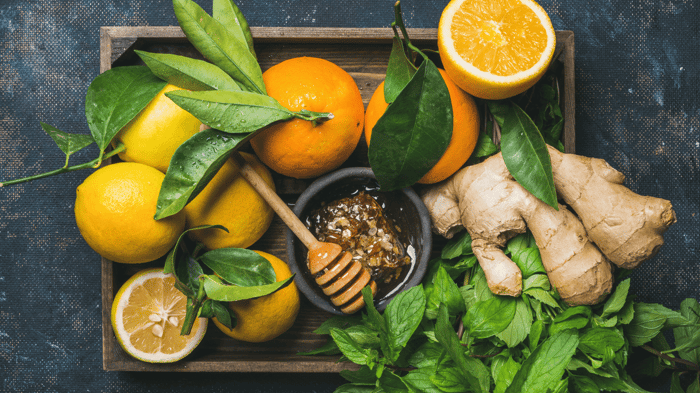Cringing at the check-out line? Us, too. How to save on groceries has been a huge topic as of late. Grocery inflation is affecting just about every household in America, with food now costing 13.1 percent more than it did a year ago. Pile that on top of the rising costs of everything else like electricity, cars, and clothing, it’s time someone gives us all a break.
But until that happens, the Be Vivid You staff has put our heads together to come up with our own tried and true list on how to save on groceries!
Stop Wasting Food

The biggest waste of money is by literally throwing away the food you have bought. Take stock of what is in your pantry, fridge, and freezer. Empty those cupboards and see what foods your family is actually eating, which ones are nearing expiration, and which ones to throw away.
This is a great starting point because you will know which foods are worth your money, which brings us to our next tip. Be Vivid You's director of digital marketing, Katie, just did a full audit on her own pantry and said it was an eye-opening experience on what her family is actually eating, and how much was getting tossed out.
Buy Only What You Need and Use What You Buy

It’s so tempting to buy in bulk because of the savings, but be smart about it and don’t throw money away on food that will never get eaten.
Become a master at storing smaller portions. Buy the huge pack of chicken and split it into proper serving sizes and freeze. You need some freezer space for this. Don’t overbuy on perishables like yogurt and milk that can’t be stored.
If buying larger quantities of produce, you can plan to use it all up by planning several meals that include those items in the same week. One favorite trick is to make a soup with all the leftover produce as it gets near its end or sometimes we google a list of all the items in the fridge and pantry that need to be used and see what comes up. We’ve found great recipes that way.
You always need to know what you have, so being organized is important. Forgotten food won’t get eaten. Keep your fridge, freezer and pantry very well organized so you don’t overbuy on perishables or forget to eat anything.
Bulk is always cheaper–if you use the food. It just requires planning, storage space and organization.
Meat Savings and Substitutes

The price of meat has skyrocketed. Even economically-friendly chicken parts are up 20 percent . Most meats are loaded with protein, and so are beans and lentils, which are much cheaper now. Try making more meat-free meals such as an all-bean chili, or yummy and filling lentil sloppy joes!
Opt for less expensive cuts of beef. Choose chuck roasts, stew meat, and hamburger over pricier steaks. One of our favorite uses for a chuck roast is this easy and delicious Italian beef recipe. Wait until the cuts of meat you like go on sale and then stock the freezer.
Also, opt for other chicken parts instead of just breast meat. While breast meat seems to have a better reputation, we think dark meats like thighs and wings have so much flavor! Our favorite for grilling is thighs, since they will stay juicier.
Make the Most Out of Leftovers

Leftovers don't have to be enjoyed the same way you originally made them. Instead of eating the same exact meal the next day, try creating a whole new dish instead. Our Be Vivid You marketing analyst, Alison, loves to get creative with leftovers, like making meal pies out of leftover Sunday roast. This is also a great reason to make a shepherd's pie with all the leftover meats, veggies, and potatoes.
Chili is another great meal that can take on a whole new life as a leftover. Make a delicious chili mac or chili dogs the next day!
And remember, most leftovers can be frozen and enjoyed weeks later. You can make an economically large meal and portion leftovers into zip-top freezer bags, saving you money on a future grocery bill, and time when you have mouths to feed on a busy night.
Buy Local Farmstand Produce, Meats, and Goods

A lot of grocery costs come from markups. Between the time the produce and meat are harvested until you pluck it from the store shelf, it may have gone through several price increases. When you buy directly from the farmers and growers, you typically pay less.
Plus, many farmstand produce is organic, making it safer and healthier for you.
And buying meat from a local farm can really give you some cost savings. Many people, including Be Vivid You's product manager, Kathleen, are buying whole cows from ranchers.
You get to choose how you want it processed (how many steaks, roasts, etc.) and the savings is substantial. This could give you months or even a year's worth of meat while avoiding grocery store markups. A whole cow is a lot of meat, but a single family can order one and share it. And you can even get soup bones to make your own delicious, nutritious bone broth!
Buy Seasonal Produce

It pays to buy what is in season. Look for the specials on produce and you will be buying the most in-season and most delicious produce. This is a more traditional way of eating and many think it’s more healthy. You’ll be cycling through different kinds of produce throughout the year instead of eating the same things all year round. And the savings can be substantial.
Use Mason Jars for Fruits and Veggies

One tip to keeping your produce fresh in the fridge is to store them in mason jars. Air is the culprit to food spoilage, so an air-tight mason jar will keep them fresher longer (they won’t get mushy or moldy nearly as quickly as being stored in a plastic zip-top bag or container).
Just make sure your produce is thoroughly dry before doing this.
Put Food on Top Shelf of Fridge

This is a great tip for leftovers and any food that will spoil the quickest -- store them on the top shelf of the fridge, so they're they first things you see. This is an especially good tip for produce, instead of the crisper drawers below, since that’s where produce '”goes to be forgotten.”
Yours-truly swears by this. I know anything I put in the bottom crisper drawer will be forgotten and turned into mush.
This makes sure you and your family grab the most perishable items first, and will definitely cut down on food waste.
Grow Your Own Herbs

Herb waste is a common issue that adds to the grocery bill. You buy a package of fresh basil, only to use a tiny amount with the rest going bad after a few days. Instead, try planting your own herb garden, even indoors during the winter. That way you only clip what you need and always have fresh herbs on hand. If you cook with herbs frequently, this is a substantial savings.
There are also easy ways to grow your own microgreens and sprouts indoors. These are great additions to soups and salads and can be quite pricey at the grocery store.
Save on Coffee with a Coffee Maker

Coffee can put a dent in your wallet, but only if you let it. First, you can always save by making your coffee at home, and there are some amazing coffee makers that can recreate your favorite lattes and specialty drinks. For more savings, ditch the Keurig and go with a traditional drip coffee maker or cappuccino/latte machine. That way you can grind your own coffee beans, which is much more cost effective versus coffee pods.
Coffee beans are also great to buy in bulk, with substantial savings. Just make sure you store them in air-tight containers in a darker part of your kitchen, like the pantry, to extend its freshness.
How Are You Saving on Groceries?
These are just a few of our hand picked favorites, but we would love to hear yours in the comments or on our social channels!




